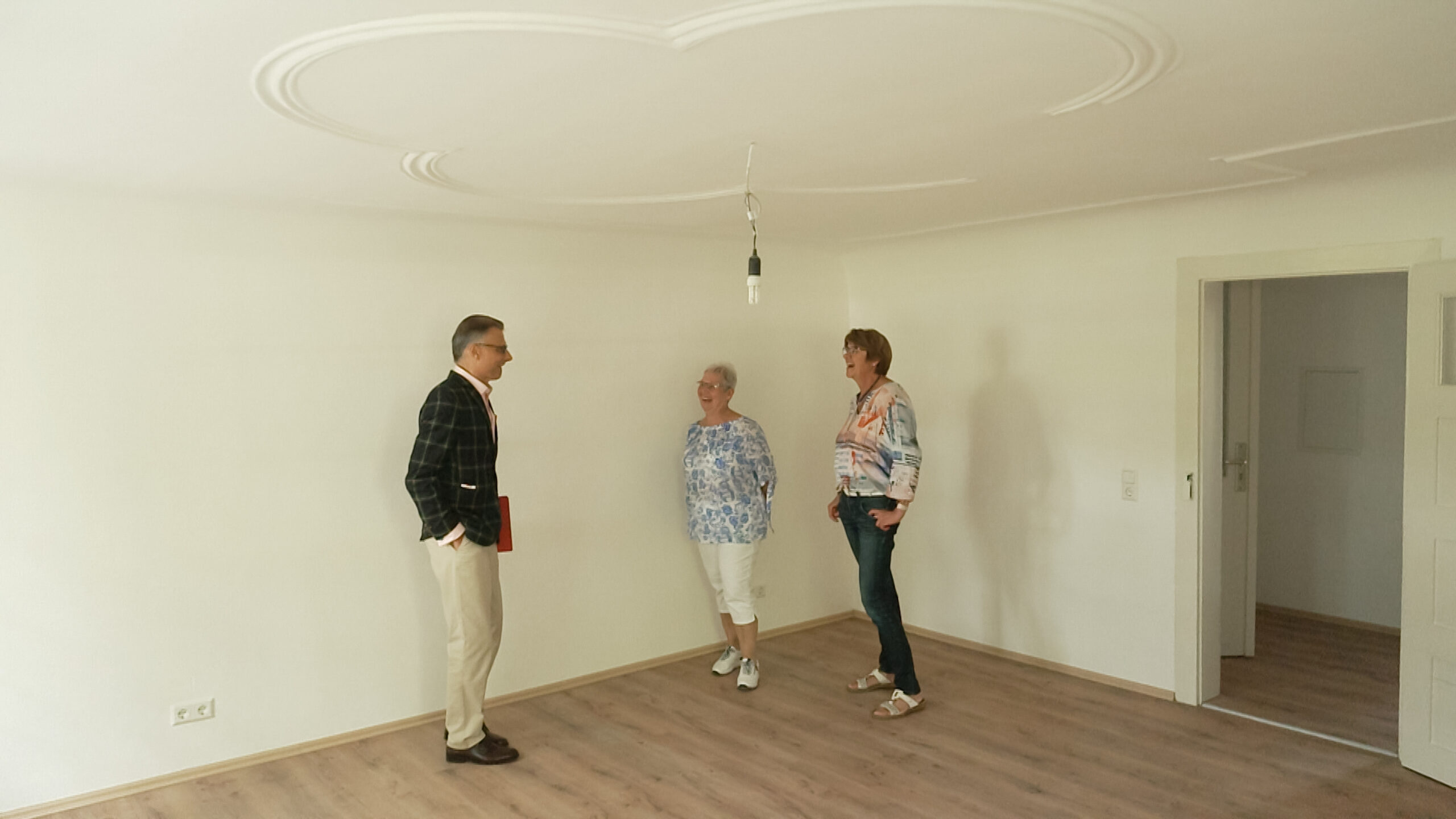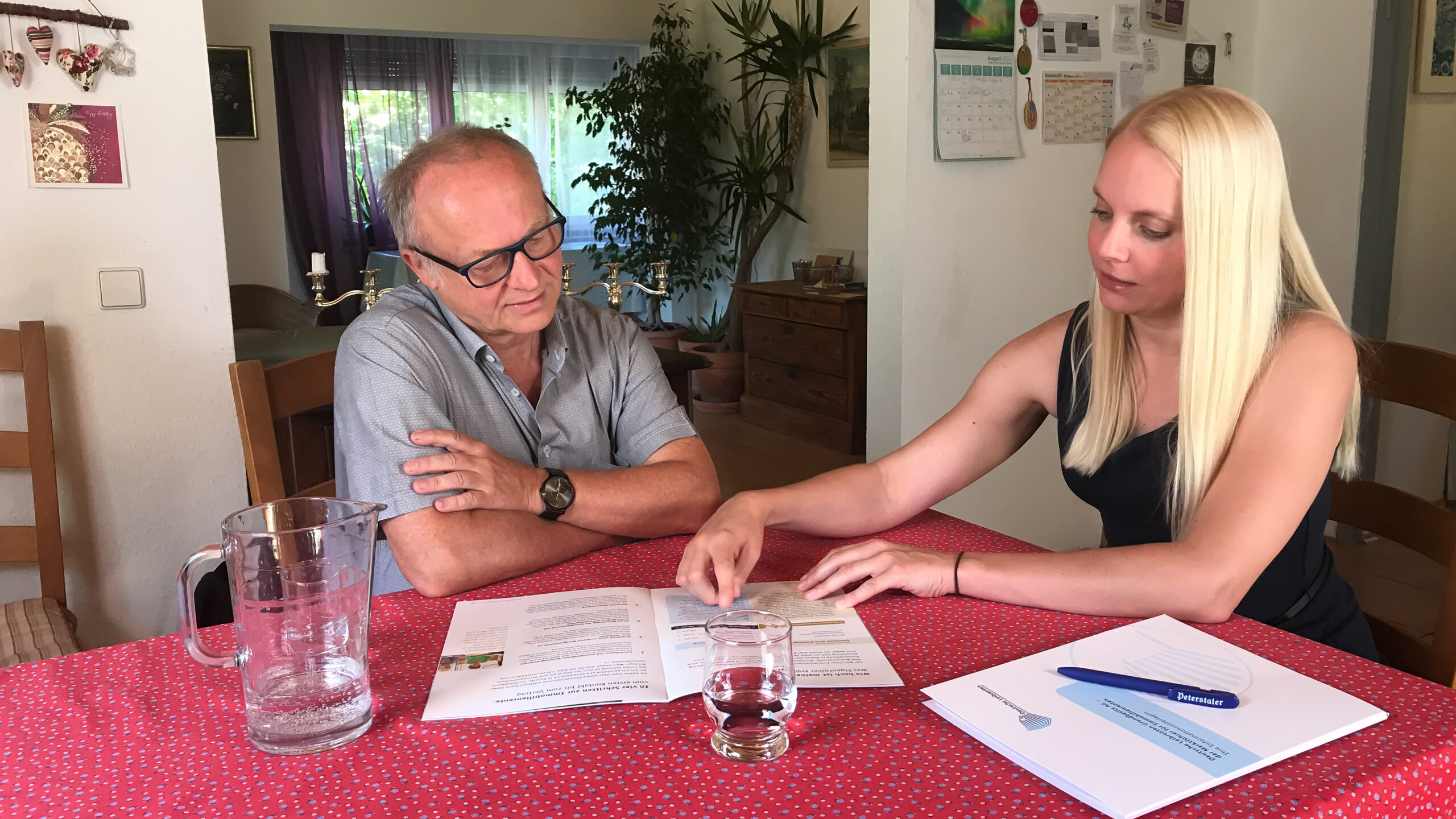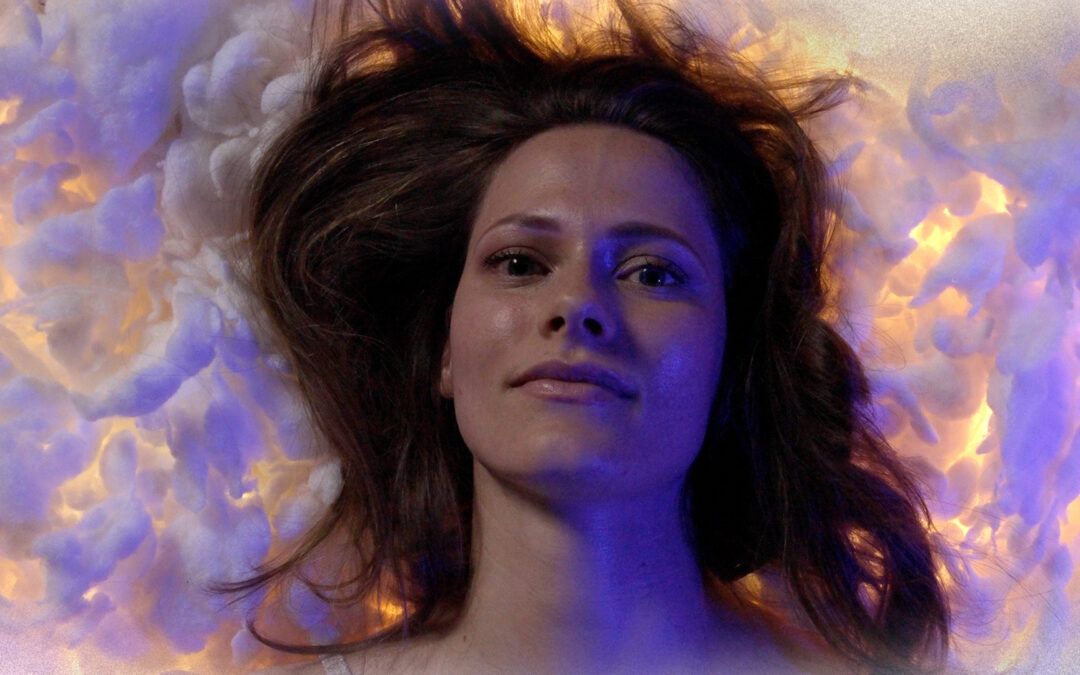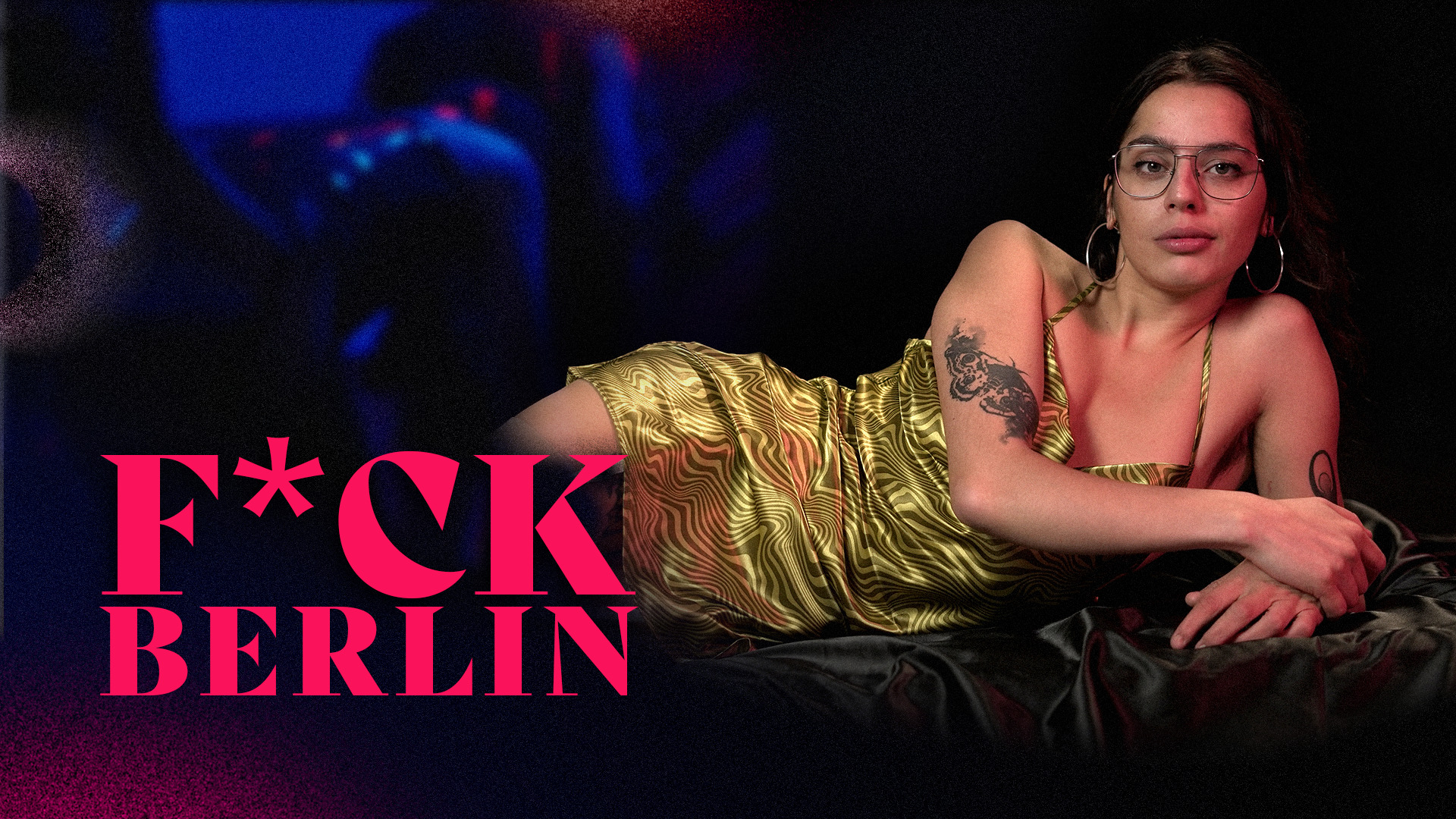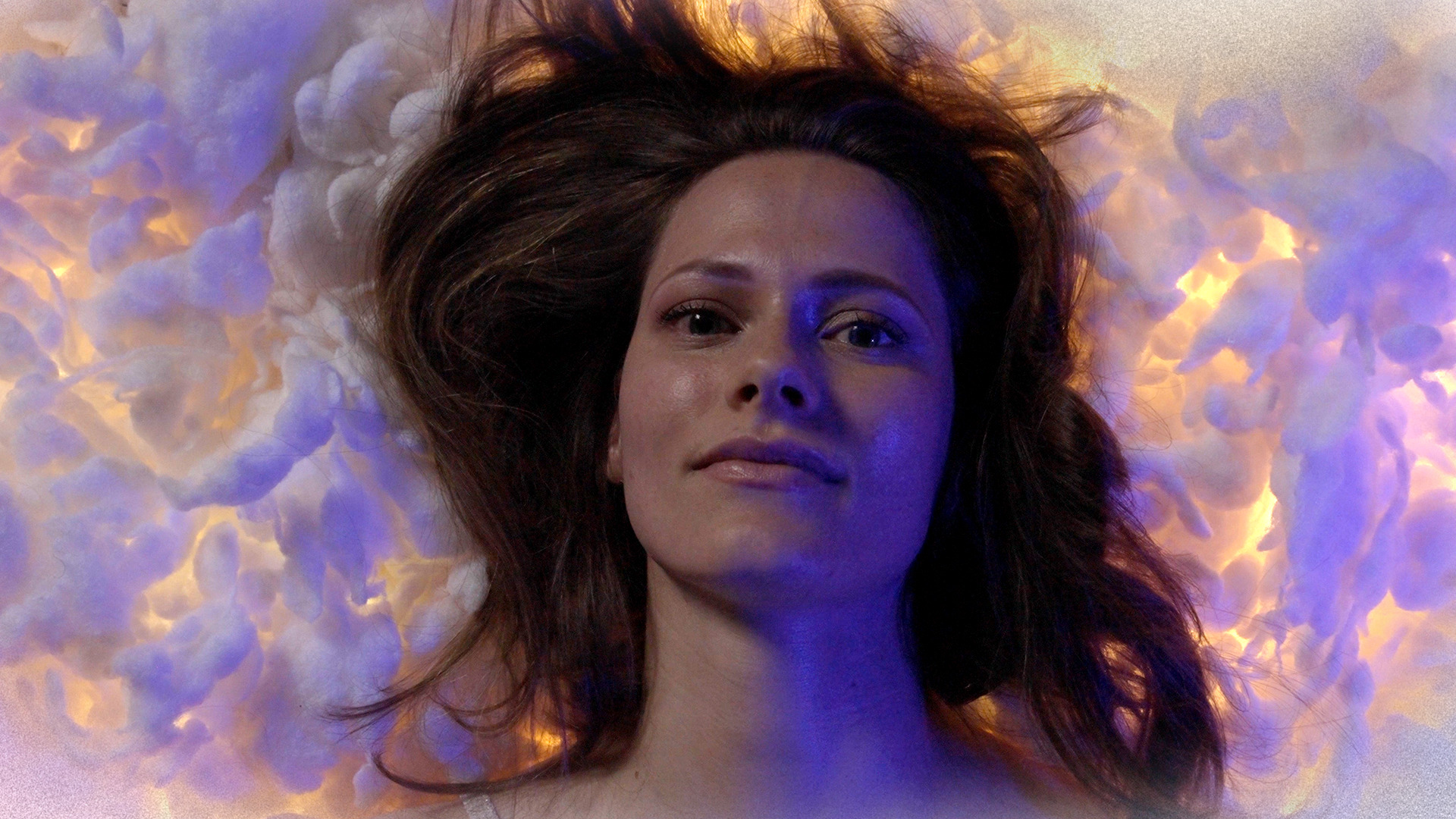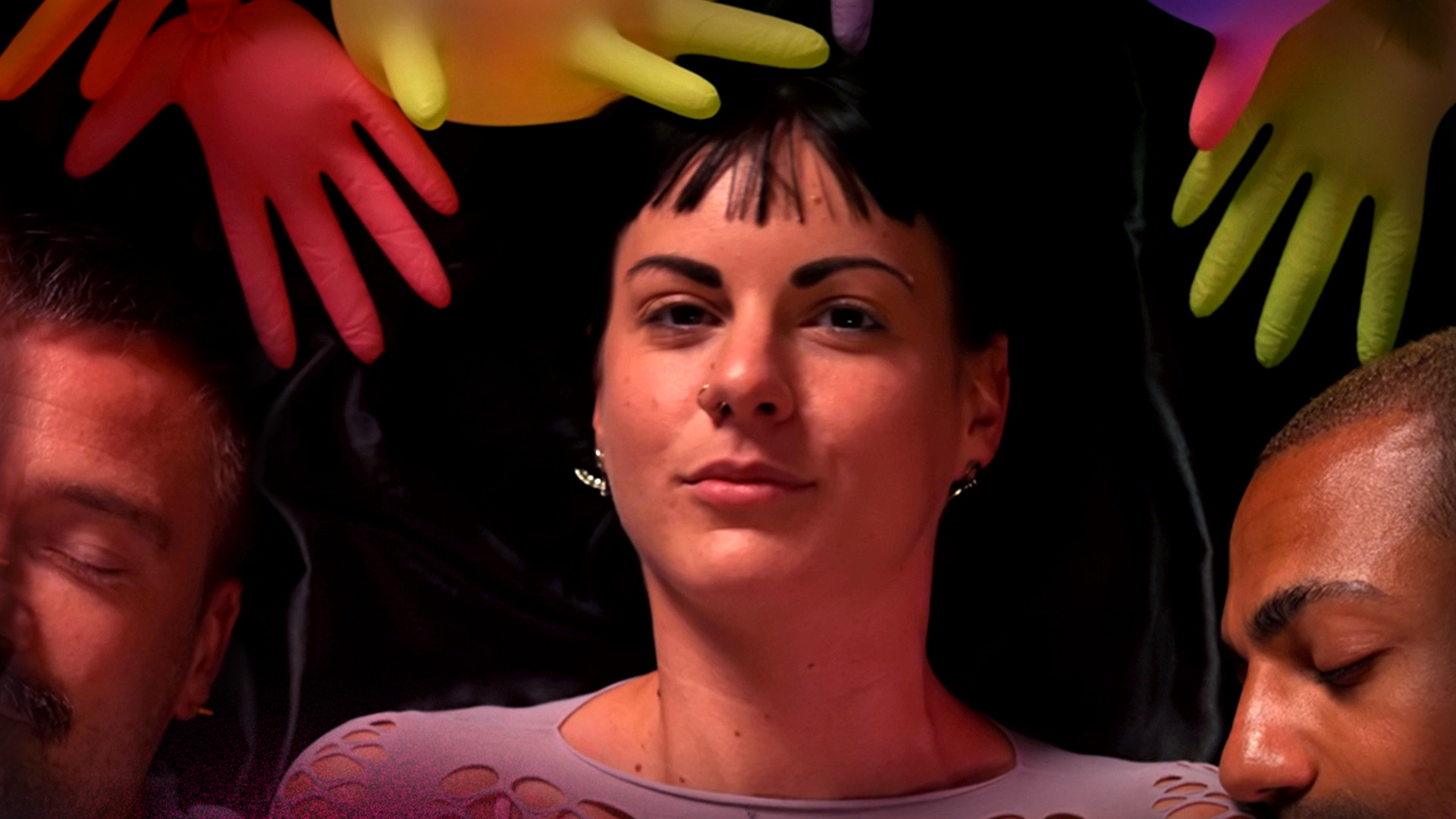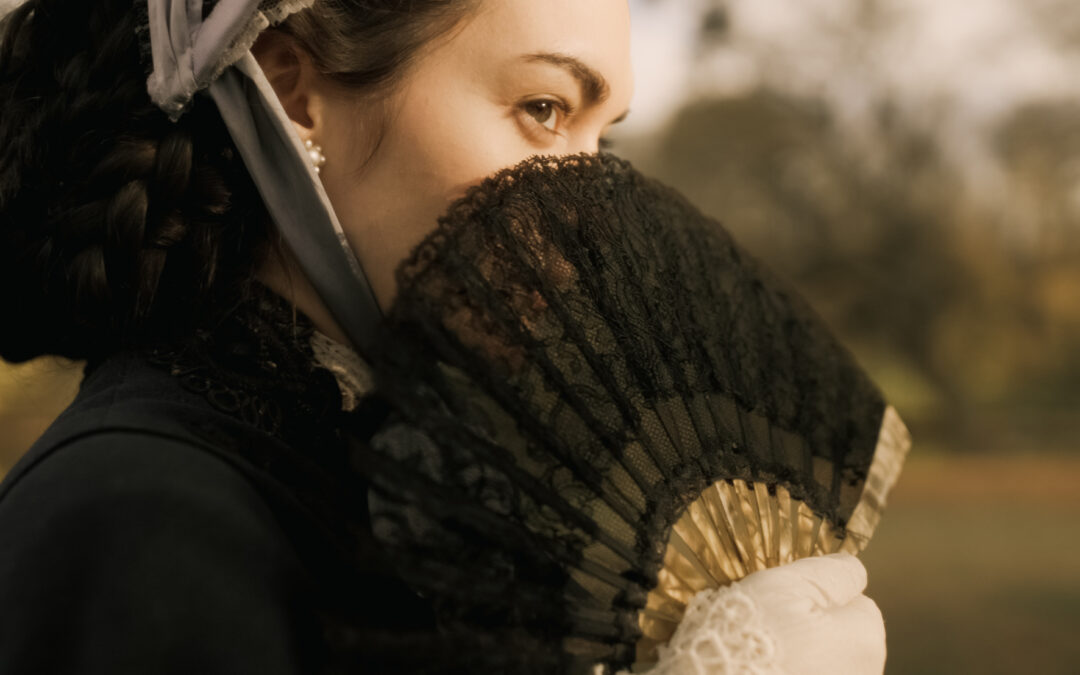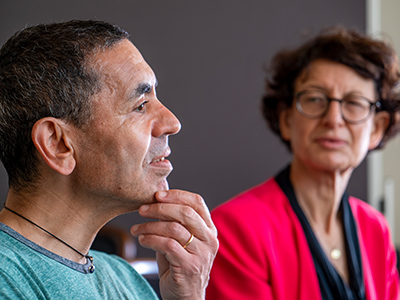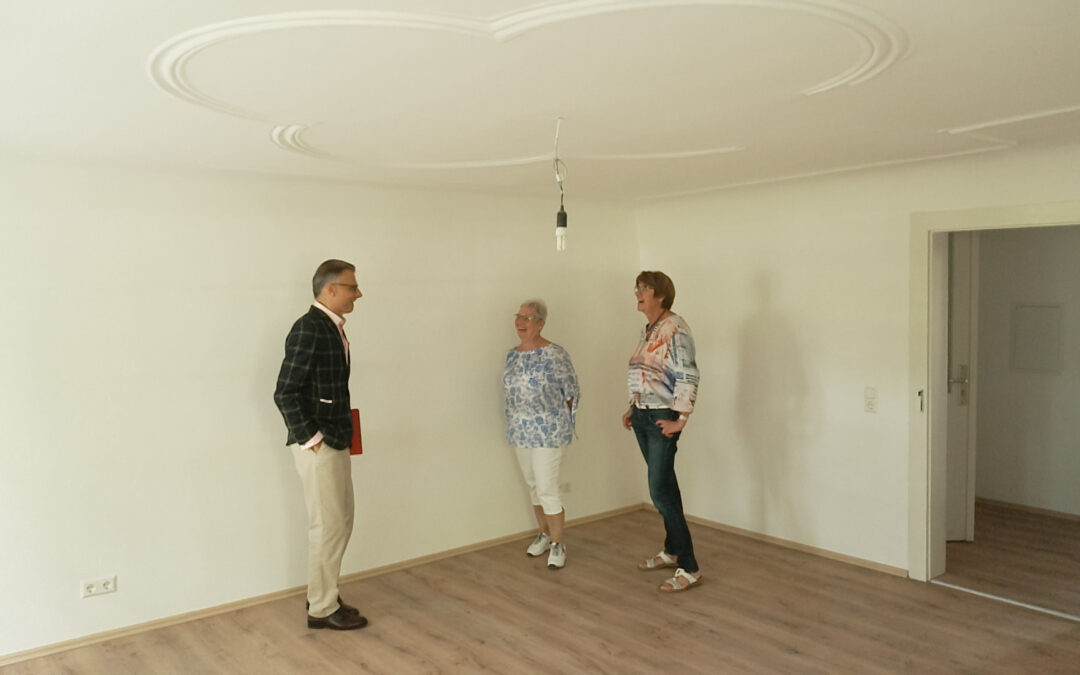
Betrifft: Wohnen ab 60 – Wo leben im Alter?
Betrifft: Wohnen ab 60 - Wo leben im Alter?
A film by Jonas Geisler and Peter Podjavorsek, 45 min., SWR, 2023The topic of housing is associated with challenges in old age. How do you avoid loneliness when you no longer have any colleagues and the children have long since moved out? What do you do if your health fails you at some point or your finances are no longer sufficient for your current home? Karin Stütz and Gereon Niekamp, both soon to retire, visit housing projects that are especially suitable for older people.
Gereon owns his own home, Karin lives in rented accommodation. Both know that they will have to adapt their living situation in retirement. To gather ideas, the two set off on a journey through the southwest of the country. They visit a multigenerational house where young and old live in community. They take a look at a farm for senior citizens, where the residents are actively involved. They learn about real estate pensions, find a senior student shared apartment and much more. It is important for them to look for answers early on to the question: Where do we want to live in old age?
